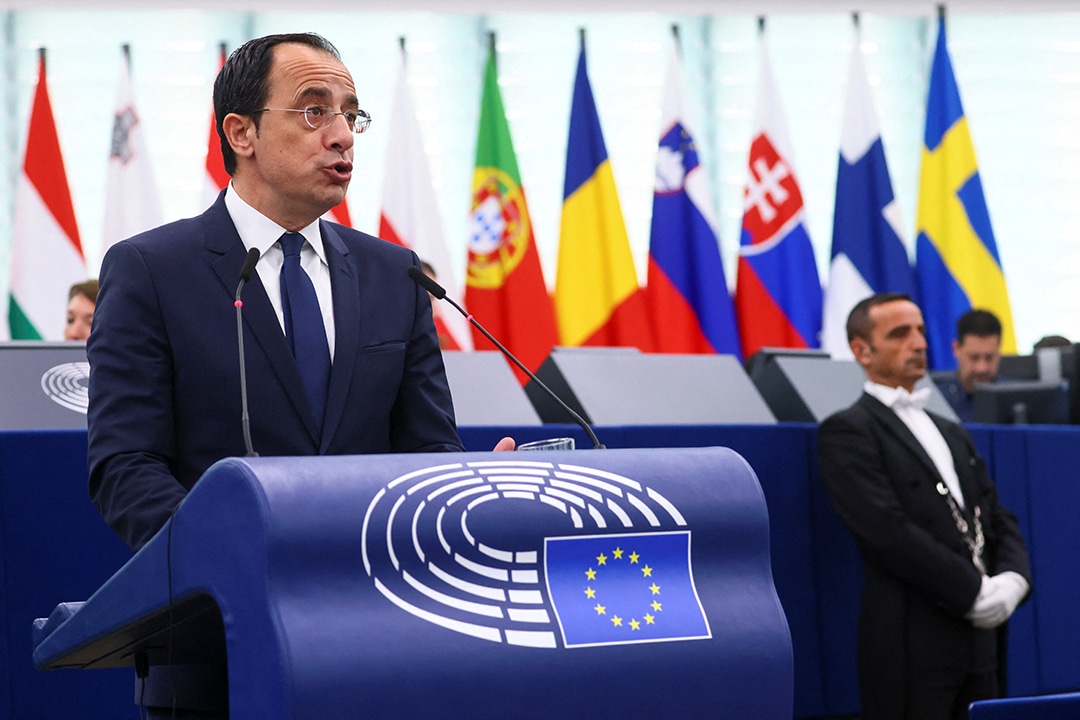Brussels has been largely mute on President Nikos Christodoulides’ proposal for the EU to become more involved in the Cyprus issue, which he has been pushing since his election almost four months ago.
No European leader so far has been willing to commit to any such thing despite some general expressions of support for a resumption of talks. Even on Monday after Foreign Minister Constantinos Kombos met EU High Representative Josep Borrell, the latter limited himself to reaffirming the EU’s commitment to support the Cyprus process.
Germany has been a bit more forthcoming. Earlier this month, Chancellor Olaf Scholz took a swipe at both sides for the lack of movement after meeting Christodoulides, saying that for talks to gain momentum it requires political courage “from both sides” and questioned whether there was “enough will from both sides”.
As if to reinforce this, Germany’s ambassador to Cyprus Anke Schlimm, in an interview with Politis on Sunday said “willingness to compromise” was important to move forward. She was clear that Germany remains committed to supporting a resolution of the Cyprus issue through talks. Pointedly, she only mentioned talks “under the auspices of the UN”.
When she was asked outright about the EU’s active participation, she avoided giving a direct answer only saying that “the flexibility of all parties involved is important” as well as the willingness to compromise.
Schlimm also spoke of the importance of cooperation with Turkey on energy, saying: “It may have to be put on the table if the natural gas in the Eastern Mediterranean is to be exploited in an ecologically sustainable way.”
There are two red flags there for flexibility. One is that Turkey has become more intransigent and wants new talks to be based on a two-state solution, with equal sovereignty just to go to the table.
Secondly, our side is doing everything else on the energy front to avoid bringing Turkey or the Turkish Cypriots into it because Ankara has been more than belligerent on gas.
This approach may appear justified to Greek Cypriots but the EU is looking at the big picture on energy and will put the overall interests of the bloc ahead of those of a single member state. As far as our flexibility goes, we are only open to it as long as the ‘TRNC’ is not upgraded or recognised in any way.
With the president’s proposal, our side believes the ball is now in the EU’s court, but we want Brussels to tell Turkey the ball is in Ankara’s court. The EU seems to be saying the ball is in the court of the two sides in Cyprus.
Christodoulides said on Saturday he had managed to get a reference to the Cyprus issue placed in the conclusions of the EU Council later this week that will “send a message in all directions” and that he is working so that “a positive message for the EU’s readiness can be conveyed”.
We await the conclusions with bated breath.







Click here to change your cookie preferences